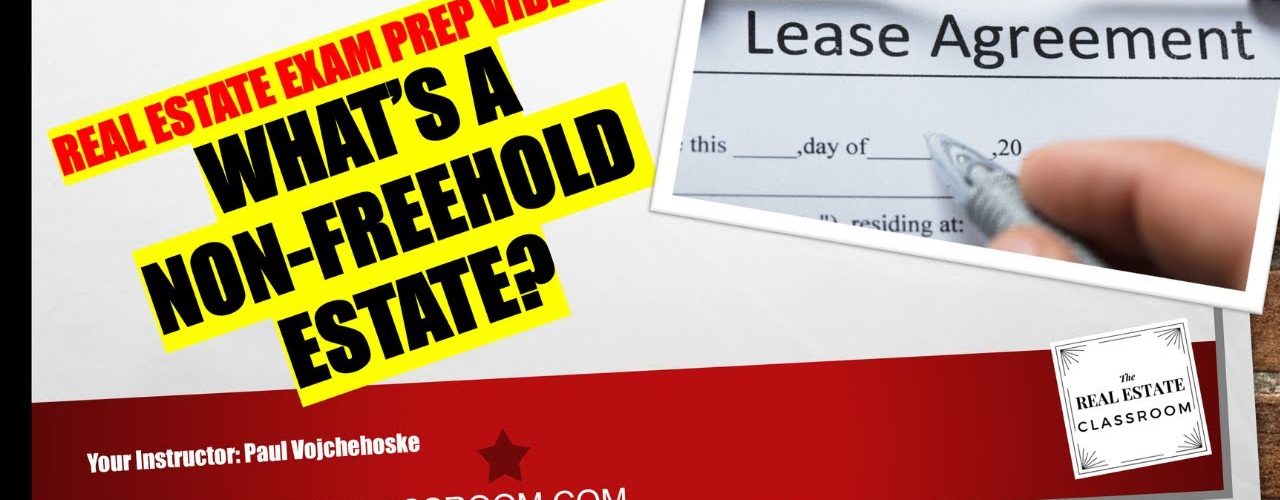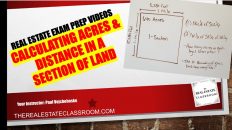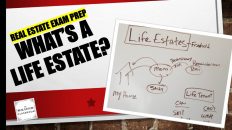Students preparing for their real estate licensing exam will need to have an understanding of two doctrines: FREEHOLD ESTATES and NonFREEHOLD ESTATES. This video will discuss specifically, Non-FREEHOLD ESTATES (a.k.a. Less Than Freehold). Key real estate terms you should know once you’ve completed this video: NonFreehold Estate, Leased Fee Interest, Leasehold Interest, Tenancy for Years, Periodic Tenancy, Tenancy at Will, and Tenancy at Sufferance. Best of luck with your studies…
✅ Subscribe for more FREE tips on how to do YouTube better:
https://www.youtube.com/therealestateclassroom?sun_confirmation=1
➡️Have you seen my latest video:
What are Freehold and NonFreehold estates?
https://youtu.be/elz24R4BPuE
?Recommended Videos
How to Calculate Property Taxes
https://youtu.be/Y8un1yjgfII
?My Most Watched Videos:
Real Estate Agent Bookkeeping Spreadsheet – Updated for 2020
https://youtu.be/0l7kWqs5eoQ
? The Real Estate Agent’s Business Plan Template:
https://youtu.be/Ci29MOCYRx4
You can find me hanging out most days on Facebook!
Facebook: https://www.facebook.com/askpaulv
New real estate exam prep videos uploaded 2-3x per week to help students pass their real estate exam. Feel free to leave a comment, suggestion, or questions asked in the comment section.
Email me: PaulVojchehoske@gmail.com
Paul Vojchehoske
Mr. Real Estate Seminars, Inc.
The Real Estate Classroom
P. O. Box 540725
Omaha, NE 68154
(402) 660-0395
Cheers,
Paul Vojchehoske
P.S. This description may contain affiliate links to products we enjoy using ourselves. Should you choose to use these links, this channel may earn affiliate commissions at no additional cost to you. We appreciate your support!
P.S.S. Nothing in this video shall be construed as legal or financial advice and is for INFORMATIONAL purposes only! Please consult with a competent attorney, financial advisor, and your broker before implementing anything you’ve learned from this video. Likewise, the issues discussed herein may not be applicable in your state or local jurisdiction.
Real Estate Principles and Practices






